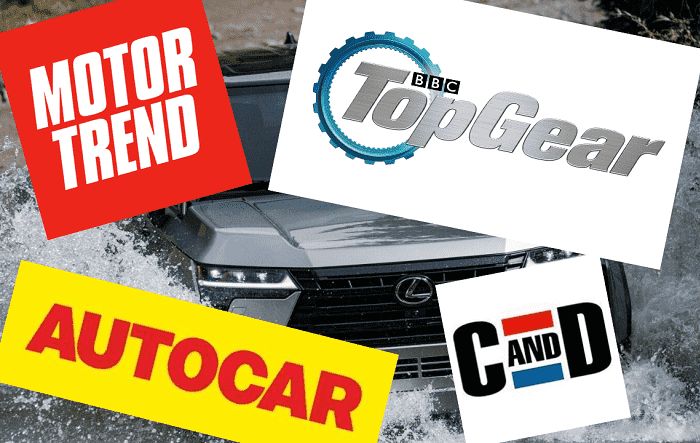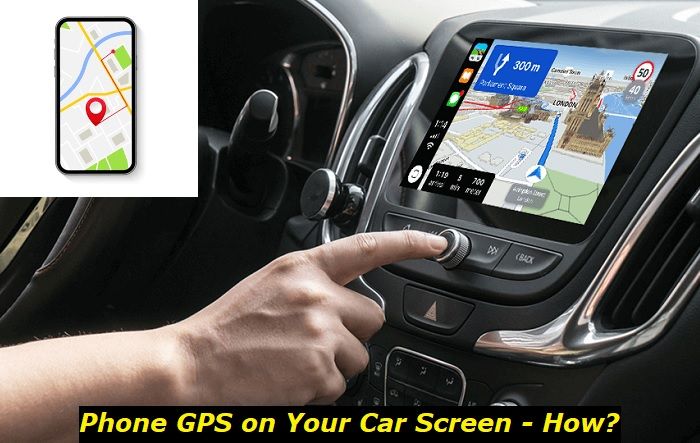Everyone wants their vehicles to run just like new ones. For years. And all drivers also hate paying for some repairs that could be avoided. That's why we've decided to compile a list of 10 important measures that will help you keep your vehicle running like new and prevent it from failing prematurely.
Please remember that any car is a mechanism that has its own lifespan. While older vehicles can usually last longer thanks to more reliable technologies, the majority of new-generation cars have a limited life expectancy. So, by applying the tips from our today's article, you will be able to get the maximum out of your car but still, you should know how many miles it can go.

So, check other articles on Cararac.com where we investigate the lifespan of different engines, transmissions, and other units in various car models!
Let's get started!
1. Make regular maintenance your religion
American car owners tend to underestimate the importance of regular car maintenance. Your vehicle desperately needs an oil change, filter change, and also basic inspections every single year or at least once every 10-15 thousand miles.
Regular maintenance is not just changing engine oil. You need to think about inspecting tires and wheels, diagnosing possible engine and transmission problems, inspecting the suspension and steering system, replacing oil, air, and fuel filters, etc.
One of the most important things is the quality of the parts and fluids you use for regular maintenance. Keep in mind that bad oil or cheap filters will not last a year and will start destroying your engine much sooner than the next oil change due.
2. Avoid aggressive driving
Unless you have a racing car or a supercar like a Bugatti or Ferrari, you will not want to show any aggression to your vehicle. Aggressive driving is the reason for so many potential problems with your car that you will just be shocked if you learn more.
When you accelerate, look at the tachometer and make sure the needle doesn't go up to 4500-5000 RPM. Keep your engine RPM limited between 1500 and 2800 RPM (optimal for most modern vehicles with hybrid or ICE engines). Also, avoid pressing the gas pedal to the metal unless the situation on the road is dangerous and demands this from you.
Aggressive driving will kill your transmission, then it will also affect the engine. We've seen cars that only made it to 50K miles and needed engine replacement or very expensive transmission repairs because of abusive driving.
3. Make sure your vehicle is clean
You may think this is just the measure of your comfort. But when your vehicle is dirty, it may malfunction. For example. a very dirty engine will overheat. Also, the mud will cause problems with electrical connections and will lead to corrosion in some elements under the hood of your vehicle.
Simple dust may clog the engine radiator and this will lead to issues like overheating or complete loss of normal work of the engine.
Protecting your car body from being too filthy is also important. The mud can gather on the painted body parts and then scratch them when something or somebody touched the car. This will lead to extensive paint wear and after some time, the car will start showing corrosion signs or other body problems.
4. Pay attention to possible corrosion
Protecting your vehicle from corrosion is super important. Again, we've noticed the trend for newer cars to last not as long as older vehicles. You may drive your 2010 Chevy without caring much about corrosion and it may still be OK. While your neighbor's 2018 Chevy has already shown some first signs of rust.
Well, you need to do a lot of work to protect the car from getting as rusty as the old bucket. We've mentioned that the body should always be clean. Also, go online and find out some of the most problematic spots in your vehicle. People on forums will tell you some parts that should get extra attention to prevent them from covering in corrosion.
Then, go to body shops and ask them if they can help you protect those parts with some effective and not very pricy methods.
5. Forget about cheap repair
Modern vehicles are very sensitive to the quality of parts you install when repairing them. Buying cheap aftermarket parts may seem lucrative at first, but after you need to repair the same unit for the third time in a year, you will understand that this is not the best option at all.
OEM parts are the best decision at all times. Cheaper parts and fluids may lead to awful consequences and eventually shorten the lifespan of your car.
6. Protect your car from weather challenges
Keeping your car outside when it's freezing may lead to damage to the cooling system and to bad starts after every night. Also, keeping your vehicle under heavy hail or under bird droppings may affect the health of its paint job and eventually lead to corrosion. If you want to drive your vehicle for ages and keep it like new, you should bear this in mind.
Keeping your car in a garage, on covered parking, or just under some special car cover is a good idea. This will prolong the life of the paint and also protect your vehicle from most of the challenges the environment will pose.
If you know that some extreme weather conditions are about to come to your area, just keep your vehicle in a garage and avoid driving it, leaving it near supermarkets, etc. One minute of hail, hurricane, or other extreme conditions may basically kill your vehicle.
7. Don't ignore it if your vehicle asks for help
Lots of American car owners do a lot of harm to their vehicles by going on driving them when there is a sign of some damage. A check engine light, a strange sound from the engine bay, a weird error message popping up now and then, etc. All these signs should warn you that something is not good with your car. And the best solution is to have the vehicle inspected as soon as possible.
A specialist with a good car scanner will tell you what the problem is in several minutes after they see your vehicle for the first time. This will cost you just a couple of bucks. So never ignore any signs that your vehicle shows to you. Sometimes, you may just save the car and avoid very expensive repairs. This will save you hundreds and sometimes even thousands of dollars!
8. Warm up your engine and drive regularly
We already see those fire arrows that eco-activists are throwing at us for the very simple advice: warm up your engine. Although it has become very unpopular and even not recommended by car manufacturers, you should remember that your engine is a piece of metal. And it needs to be warmed up properly before you start driving. 30-40 seconds in winter and 20 seconds in summer are enough but without this, your engine will be wearing much faster.
Also, avoid long periods of inactivity for your vehicle. If you don't drive the car for months, you should at least start the engine once a week and let it idle or just drive the car around the neighborhood for 10 minutes. This will keep all gaskets and seals healthy and help your engine be OK longer.
9. Avoid massively advertised products
We hate all those revitalizers, fuel additives, oil additives, interior cleaners, etc. that are made for DIY car maintenance and "professional" care. These products are mostly made for taking money out of your pockets. But it's not the worst feature. They can also harm your vehicle. For example. fuel and oil additives may contaminate filters and change the quality of fuel or oil. Chemical cleaners may damage plastic or leather surfaces in your vehicle.
Buy basic products for car care and avoid anything that seems suspicious or doesn't get lots of good reviews in trusted forums and on online shopping sites like Amazon. Check and investigate every product that you use for car maintenance or repair.
When it comes to some "magical" additives, just don't buy them. They are all made for making money for someone who manufactures them and not for your car's health.
10. Visit a dealer or a good and trusted car mechanic
Even though we hate dealers and most of us call them "stealers" for their wish of getting our money, you will not find a much better place to repair and maintain your vehicle. One other option is to search for a specialized repair shop where mechanics deal with a certain brand of cats and understand what they are doing.
Also, dealers provide you with OEM parts while small repair shops may sell you aftermarket parts at high prices. Car repair is not a very fair sphere and mechanics often can take money for something they didn't do in your vehicle. So, just find a good mechanic or put up with some negative sides and go to the dealer.
Before you pay money for a very expensive repair, have the vehicle inspected somewhere else to make sure your mechanic did the right inspection.
Final thoughts
We understand that you want to drive your vehicle for a long time and avoid extra expenses on repair and maintenance. But you need to choose whether you want to pay for regular maintenance and care or you are OK with unpredictably high expenses for repairs in the future. Take your vehicle seriously and understand what it needs to avoid very expensive problems.
Also, keep in mind that your car is a machine and it needs proper care. Provide it with some TLC and it will return to you a lot of miles of carefree driving. Otherwise, problems are just inevitable.
About the authors
The CarAraC research team is composed of seasoned auto mechanics and automotive industry professionals, including individuals with advanced degrees and certifications in their field. Our team members boast prestigious credentials, reflecting their extensive knowledge and skills. These qualifications include: IMI: Institute of the Motor Industry, ASE-Certified Master Automobile Technicians; Coventry University, Graduate of MA in Automotive Journalism; Politecnico di Torino, Italy, MS Automotive Engineering; Ss. Cyril and Methodius University in Skopje, Mechanical University in Skopje; TOC Automotive College; DHA Suffa University, Department of Mechanical Engineering






Add comment